Materials to be Tested for Young Women
Attachment_E1_Materials_for_Young_Women.docx
CDC and ATSDR Health Message Testing System
Materials to be Tested for Young Women
OMB: 0920-0572
Material a
POdcast: “Caroline”
Transcript
CAROLINE PRUCE
INTRO
What was the moment in time when things changed for you? What motivated you to move forward or take action? Welcome to My Motivated Moment, a podcast featuring young women bravely facing a breast cancer diagnosis or risk of breast cancer, and the people in their lives who support them. In these live recordings, you’ll hear all about the moment everything changed for them. And how their experiences inspired them to become empowered advocates for their own health.
Caroline’s moment happened shortly before her wedding. She learned that her mom had breast cancer. Upon hearing the diagnosis, she had no idea it would affect her and her sister so differently. Ultimately, Caroline was not shy about dealing with it head-on… just days after she walked down the aisle.
[00:17:00]
Caroline:
[00:17:30]
My future was bright. I was engaged, found the love of my life, caught up all in the weeds of planning a wedding, loving life, extremely happy, great job, everything going well, when I got a phone call from my mom at work, "They found something on my mammogram. I have breast cancer. I know it." And immediately went nuts on the phone (laughing). That's my mom. And I just said, "Okay, calm down. It's probably nothing. Let's wait to see what happens. Let's take … take a breath." I'm at home, get another panic call in the morning, "Oh my God, it was breast cancer." She actually had a reason to be so stressed out. Now my mom … there are lots of moms out there that are stoic and they keep it to themselves they had breast cancer and they don't want, you know, anything on their kids.
[00:18:00]
That is not my mom (laughing). My mom was like, "I need you to help me. I need you to get me. We got to find the right doctors. We got to do this right." So we were there with her every step of the way. Part of her process of going through the breast cancer treatments was finding out that she should go through genetic counseling. The reason for this she's of … all of us are of Ashkenazi Jewish descent. One in 40 Jewish women are carriers of some kind of hereditary mutation. So it's very important to go down this path.
[00:18:30]
So my mom went in first for testing, and eventually … and found out for the first testing which was a panel of 8 for the Ashkenazi Jews. She actually tested negative on the mutations, uh, that were normally tied to BRCA mutations for Jews. So we thought "Oh, we're in the clear." She goes in for more extensive genetic counts panel testing and found out she's … is a BRCA2 mutation carrier. That was such overwhelming news. We couldn't believe it. We thought we were in the clear and then she was a BRCA mutation carrier.
[00:19:00]
[00:19:30]
At that moment I just couldn't think about it. I couldn't deal with it. We were about to get married. My husband and I we were just about to buy a house. I just put it in the back burner. I was like, "I'm not going to think about this right now. Got married, bought the house, settled down, and then I thought, "I guess we need to do something about this. I guess I need to start thinking about this." So I went in to see a geneticist to go through the beginning of the testing. Uh, she was just talking to mom and going over all these facts that I didn't really feel like I was getting anything new. I had already (laughing) learned about all of this. I was like let's get to the point.
[00:20:00]
She … we took the test, fit in a little thing and off I went. I'm out with a friend, about to go to shopping at Wegmans, I'm in the parking lot, and I get a phone call from the geneticist. Now [that's a way to call someone 00:19:50] and she just says something like, "You know, you have the BRCA mutation." Okay, I didn't know how to process it. It was so overwhelming. It was not the moment I wanted to hear, definitely for my sister, "Do not see a geneticist. Go see a genetic counselor who can counsel you and had been trained at how to give this kind of information." Don't know about MDs [inaudible 00:20:13] (laughing).
[00:20:30]
[00:21:00]
So we then [went by 00:20:17] my process. And again after that I decided to put it back into the back burner. I'm not going to think about this right now. I can't focus. So times goes by. My husband's like, "Well, are you going to do something with this information or are you just going to keep sitting on here and thinking about this information?" (laughing). I was like, "All right, you're right. I got to go do something about this." So I start my monitoring at Georgetown University. I go in for a breast MRI and a mammogram, and when I get in … my MRI results they found something suspicious. Once at first they found something suspicious, in my mind I'm like, "I'm not going to be this eternal patient. Like I'm going to have these removed. I can't deal with this." Of course, my husband was thinking, "That's a little crazy, Caroline. You just had one test. Like let's see what happens."
[00:21:30]
So I said, "Okay, you're right, you're right." So we go in. We … I then have an ultrasound biopsy to test this mysterious, uh, suspicious stuff. So I have the ultrasound biopsy. We come in. We wait a whole week for the results. That week wait and my husband is starting to get, "I get this, man. That's a long time to wait for results (laughing)." So we go in and they say, "Hey, it looks good, but it's not completely good. We need you to go in for surgery to have a surgical biopsy." That moment I was like, "No. Like if you're putting me under, I'm taking that risk of anesthesia, then I am getting the whole thing done. Like that is too much." My husband was like, Hell yeah, I'm totally on the same page. I am not going to be doing this every six months with you." (laughing)
[00:22:00]
[00:22:30]
So we then go ahead and schedule the surgery. I had a bilateral prophylactic mastectomy, which is preventative, um, with nipple skin sparing … sparing. Nipple skin sparing prophylactic mastectomy with expander to implant reproductive … reconstruction. So that process was fine. The surgery actually was not a big deal. I … I have a pretty high pain tolerance. It wasn't. What was hard was the mental. So while I was thinking all this stuff out like "This is what I'm going to do." I didn't think about what it was going to feel like to lose my breasts and they're who you are. They're a part of who you are, and it was grieving. I was grieving. I was losing a part of who I was. I was a person who loved my breast. I always wore sexy tops. I even was in a wet t-shirt contest in college (laughing). So like I am not a person who was shy about my breasts.
[00:23:00]
So it was definitely I didn't take into account like how hard that would be. And also like all the celebrities who were having this, they you know glamorize it. They're like, "Oh, Angelina Jolie got it. It's …" No, it's not like a breast implants. They remove all the tissues. They remove all your nerve endings. And it feels like two foreign objects in your body. You lose all sensation. It's hard. It feels like foreign … you're walking around with two foreign objects on your body. At first, I didn't like them. Now I look at my old self and I think these are better. I don't know why I thought that (laughing).
[00:23:30]
[00:24:00]
But back then it was hard, like I definitely was grieving losing a part of me and it was an emotional experience, and it took me a while to get to where I am now, which I am so happy with the choice I made. I don't have to be that eternal patient where I can just not have to think about it and I give back to the community with what I've learned. And I can focus now on our two beautiful children; one who's almost three, the other who's 15 months. And I don't have to think about what's going to happen at my next checkup, and I can focus completely on my family and raising, um, my beautiful children, and not think about during pregnancies or any of those things. So I'm so happy with the choices we've made. And my future is just as bright. (Applause).
OUTRO
Both Caroline and her sister carry the BRCA gene mutation, but made very different choices about how to approach their risks. With the support of her family and her new husband, she made very personal choices about trying to secure a future in which she’d always be there for her kids.
We hope that stories like this will empower you to Bring Your Brave. Talk to family members to learn more about your family’s history of breast and ovarian cancer, and share what you learned with your health care provider. And if you have a story to share, visit cdc.gov/bringyourbrave or bringyourbrave.tumblr.com to join the breast cancer conversation.
This episode was brought to you by Bring Your Brave from the Centers for Disease Control and Prevention. Take care of yourselves. And thanks for tuning in.
Material B
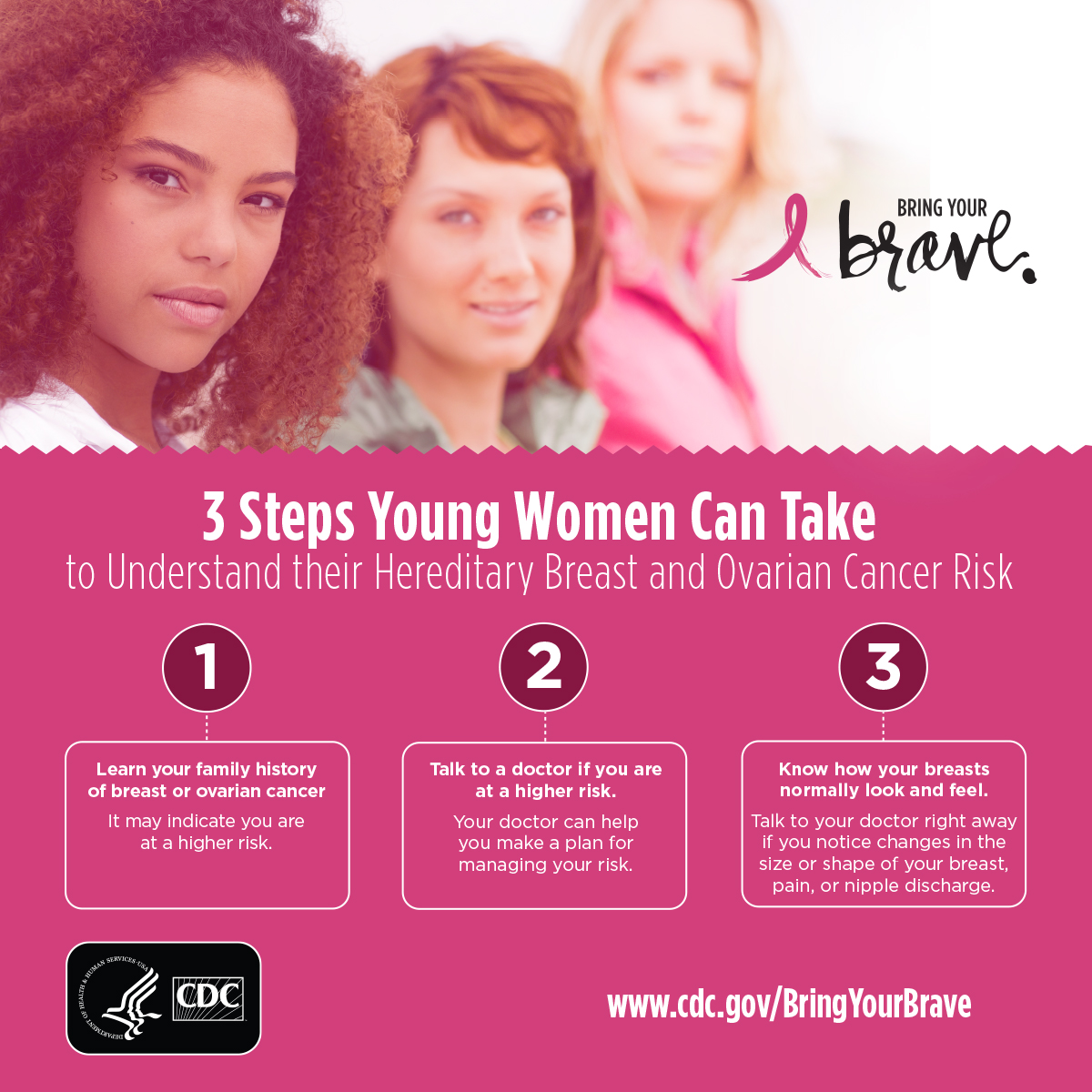
Material c
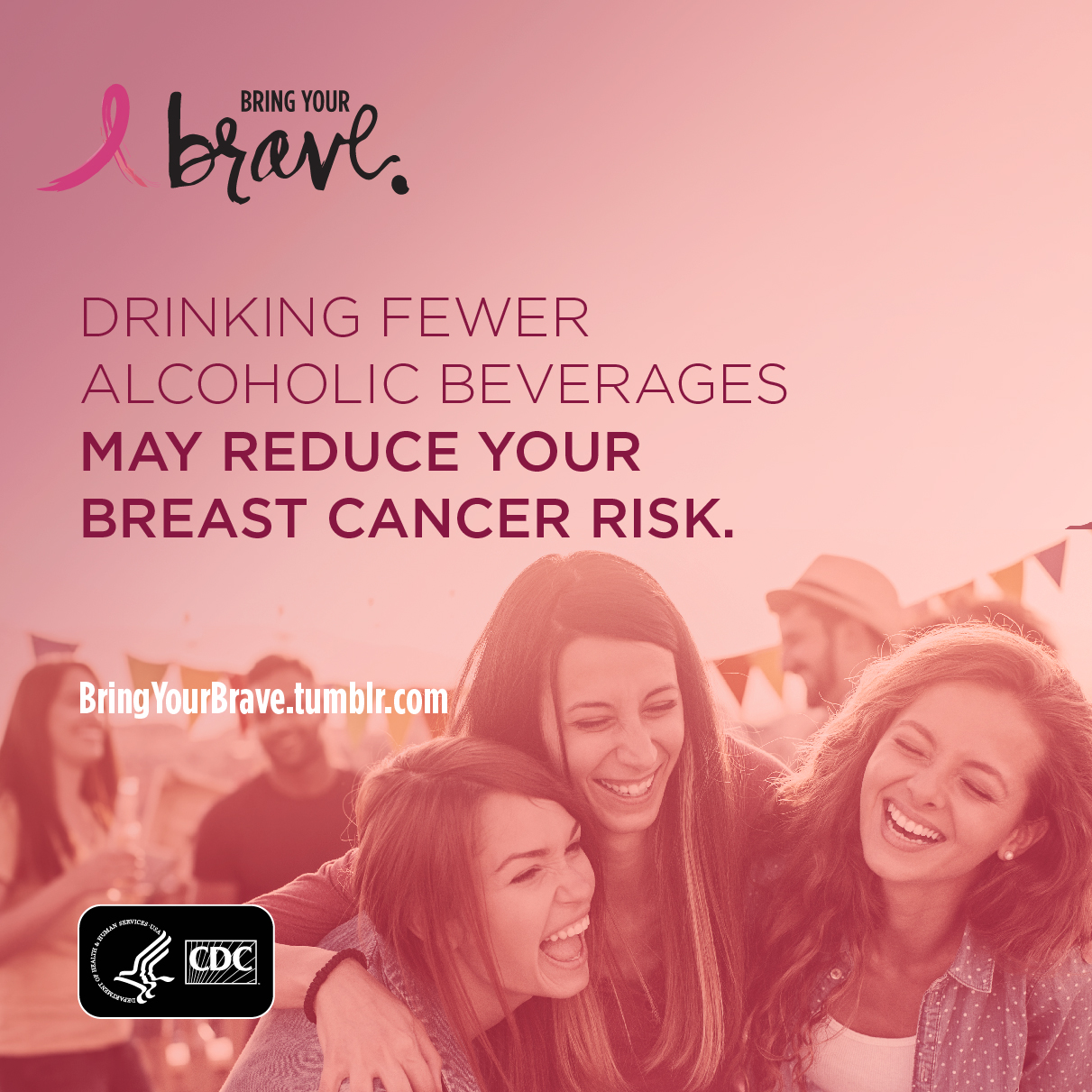
Material D
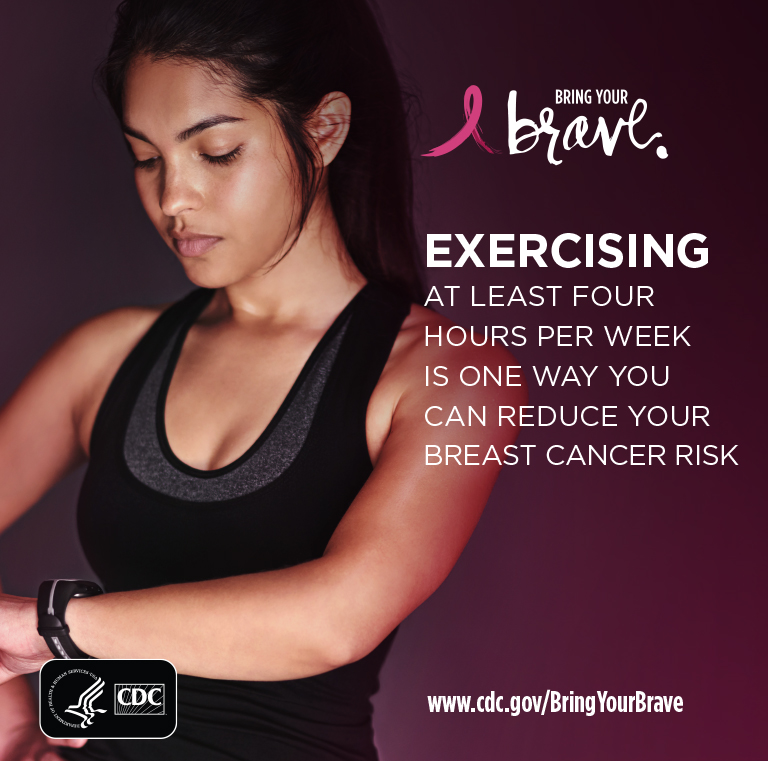
Material E
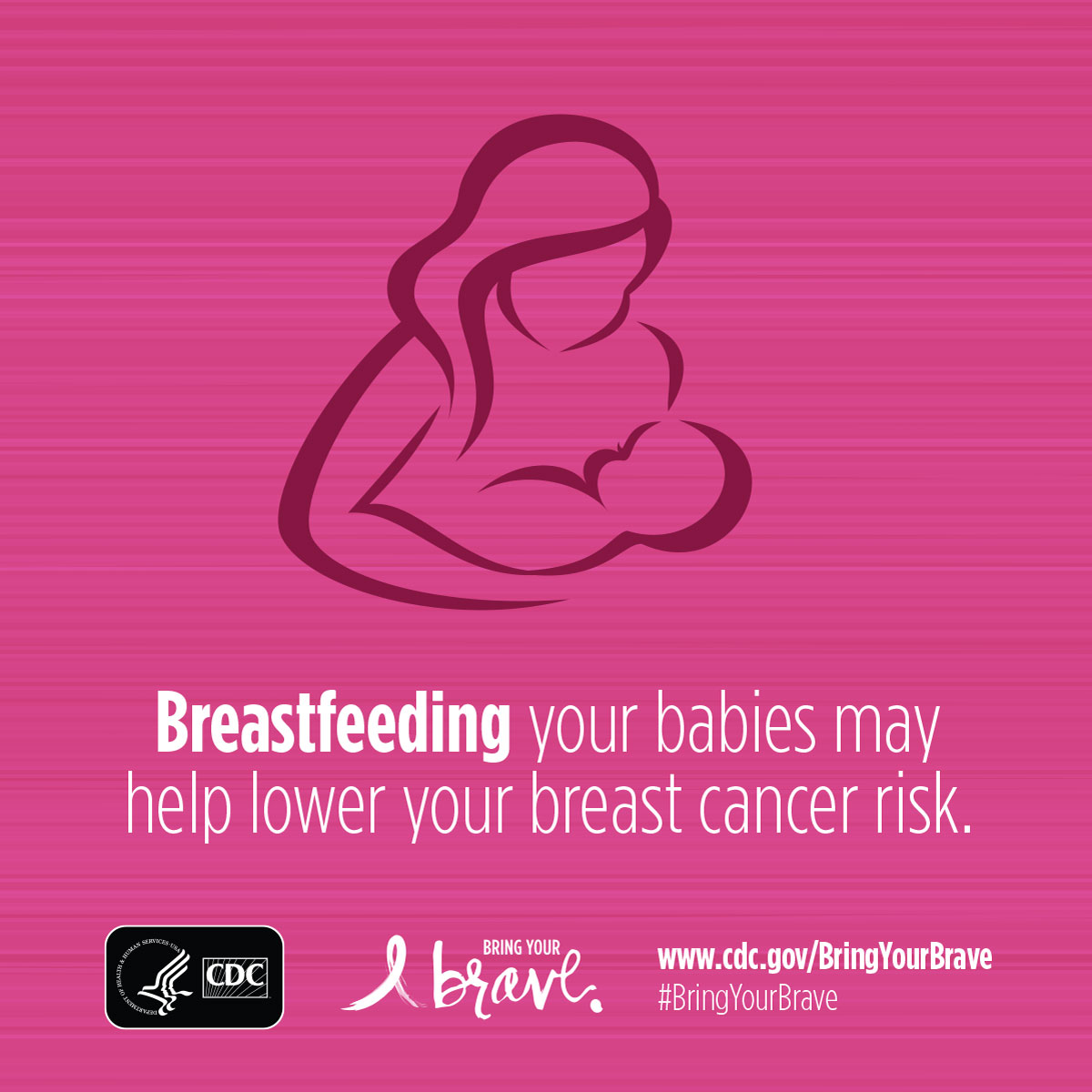
Material F – 15 sec. ad
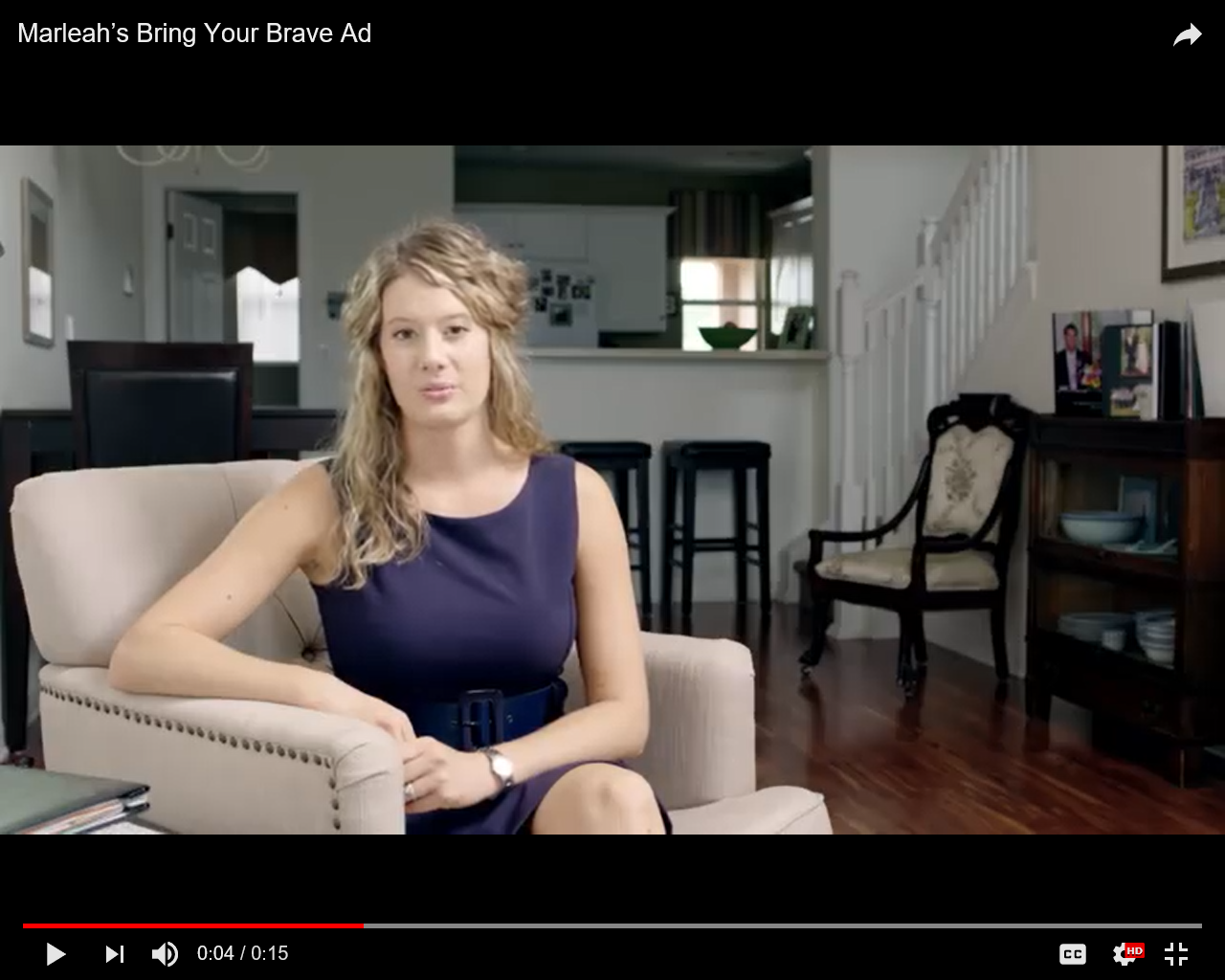
Material g – 15 Sec. Ad
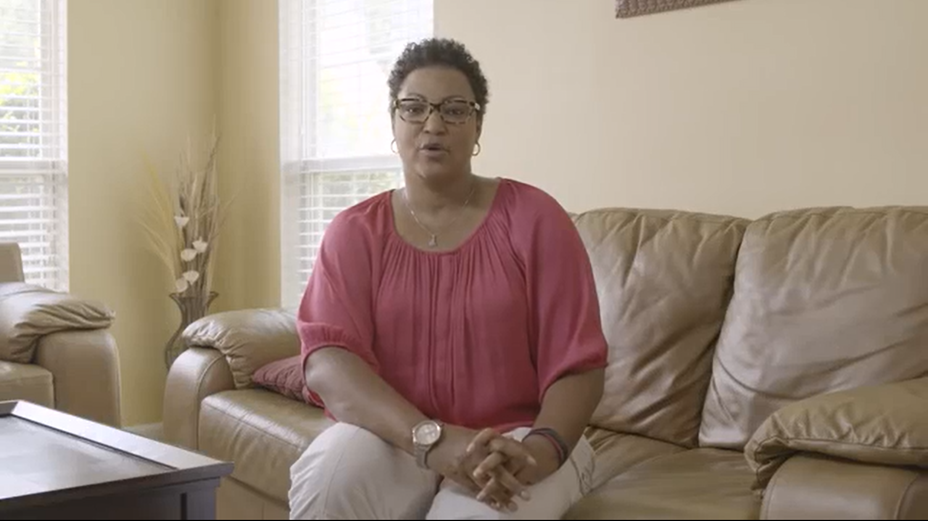
Material h – 2.5 min. Ad
VIdeo: “Living My Truth”
Transcript
Charity
My name is Charity, and I am 31 years old and I live in Washington, D.C. I work at a university in the psychiatry department…for fun I like to do stand up comedy.
Around September of 2012, I found, felt a lump in my breast… I went to a doctor and they figured that I was young, that I should just probably keep an eye on it, if it got worse, come back. Gradually over time it was progressively getting worse,
I knew something was wrong, wasn't sure exactly what it was, but I had a bad feeling about it. I went to the hospital and about three days in to being in the hospital, the cancer had eaten through my breast.
…I was 27 years old, I was diagnosed with inflammatory breast cancer, at stage three C. I really didn’t have time to sit and think about what was going on, what was going to happen. …I went through total eight rounds of chemotherapy…double mastectomy…bilateral mastectomy, non skin sparing, and then I went through 33 rounds of radiation.
I decided to get genetic testing and counseling and I tested positive for the BRCA2 mutation.
It just felt like being diagnosed with breast cancer all over again
I actually honestly thought that the tests were gonna come back negative.
I'm predisposed to breast cancer, ovarian cancer, skin, pancreatic and stomach cancer, which is scary in its own right. I've already had one diagnosis, just feel like compounded the issue.
I decided to be proactive in my health and cut down on the risk of getting ovarian cancer.
Having that diagnosis of BRCA2, I made the decision to have both of my ovaries removed
it was a big decision for me to make [cut: at 27,] single, never had children, um, and I was in the middle of chemo. There was no freezing my eggs right at that time.
After everything was over, it was a real shock to kind of like get back in to, you know, normal life and figuring out ... trying to decide what was best for me…
humor is my way of getting through difficult things. Always has been, probably always will be, and I felt like I needed to share that with other people.
I felt like I have a story that's not really like anyone else's,
I think doing the comedy allows me to,
to tell people that breast cancer just doesn't happen to someone that's 75 years old. that there isn't just one face to breast cancer, that you need to take your health seriously
I think for someone that's managing their breast cancer risk, talk to your doctor, talk to another doctor, get more than one opinion, I think. Um, more knowledge you have, you're better able to make an informed decision.
For me, ownership means living my truth. This is something that happened, I won't forget it, I can't forget it, ever.
Material I – 2.5 Min. Ad
Video: “Do What’s Right for You”
Transcript
Caroline and Emily
My name is Emily. I live in Washington D.C.
I’m Caroline and I'm a stay at home mom
E: She's my older sister, so in general, I go to her for advice with different things in life. So…she's just been great to have
C: Auntie Em, is amazing with the kids. She's an awesome aunt and she just really loves them. We always have a really great time together
(B-Roll Break)
C: Well, my mom was diagnosed with cancer, uh, January 2012 and that was actually the year I was engaged and planning our wedding.
E: I was about a year out of college
C: She had triple negative breast cancer. My mom was a BRCA mutation carrier, I was like, "I need to f- Know." I- So, I went in and I met with the counselor. She went over all my risks. Fi- You know, and it was a 50/50 chance I could get it or not. I took the test and I was positive with the BRCA-2 mutation um, found out I was a carrier and it was a lot to process.
E: I just decided I would do the same. I had my sister who went through it and we're really close, so I had that person to kind of talk to about more of the emotional side I also found out that I had tested positive.
C: When I began the monitoring process…I had the mammogram and the breast MRI and they found, um, something suspicious… My Dr. … said that she would like to do a surgical biopsy to test it further.
At that point, I said, "Well, … If I'm going under, let's just do it…. so I decided at that moment to have a …Bilateral prophylactic mastectomy
E: It was a really good decision for her, but you know, it's not a casual surgery
C: I didn't want to be so anxious, so that's why I decided to go that route because it would've just been on my mind
E: Um, being single and young and not really knowing, you what my future held, um, I knew that I wanted to just be-Continue with surveillance. I didn't feel settled enough to really take that on or didn't feel emotionally ready for it, um, but as I'm getting older now, I kind of feel like I'm getting there.
C: I think Emily's on a great path and we're both very supportive of one another. My mom's always been very, like, "You gotta do what's right for you... "Go with your instinct.
E: It's each person's, you know, own decision of what they want to do.
C: Everybody's different, everyone's unique and you, you gotta take all the data and your life and what's going on and kind of figure out what works best for you.
| File Type | application/vnd.openxmlformats-officedocument.wordprocessingml.document |
| Author | Wilburn, Ben |
| File Modified | 0000-00-00 |
| File Created | 2021-01-21 |
© 2026 OMB.report | Privacy Policy